
Molde: The City of Roses and Panoramic Fjord Views
Molde, often referred to as the City of Roses, is a charming town nestled along the coast of Norway's Romsdal Peninsula. The city is renowned for its picturesque landscapes, with rolling hills, lush gardens, and stunning fjord views. Visitors can enjoy breathtaking panoramas from the Varden viewpoint, which offers a sweeping vista of 222 snow-capped mountain peaks. In the heart of Molde, you will find the Romsdal Museum, one of Norway's largest folk museums. Here, you can explore traditional wooden buildings, learn about local history, and experience cultural events. The city's rich musical heritage is showcased during the annual Moldejazz Festival, one of Europe's oldest and most prestigious jazz festivals, attracting world-class performers and enthusiasts alike. Nature lovers will find Molde a paradise with its close proximity to the famous Atlantic Road, a scenic drive that takes you across a series of islands and bridges with dramatic ocean views. Hiking enthusiasts can venture into the surrounding mountains for trails that offer both challenges and rewards in the form of stunning natural beauty. Whether you're strolling through the rose gardens, enjoying local cuisine, or exploring the natural wonders, Molde offers a serene and enriching experience for every traveler.
Local tips in Molde
- Visit in July for the Moldejazz Festival to experience world-class jazz performances.
- Head to the Varden viewpoint for the best panoramic views of the fjords and mountains.
- Take a drive along the Atlantic Road, one of the most scenic routes in the world.
- Explore the Romsdal Museum to learn about local history and culture.
- Pack a good pair of hiking boots to enjoy the numerous trails around Molde.
Molde: The City of Roses and Panoramic Fjord Views
Molde, often referred to as the City of Roses, is a charming town nestled along the coast of Norway's Romsdal Peninsula. The city is renowned for its picturesque landscapes, with rolling hills, lush gardens, and stunning fjord views. Visitors can enjoy breathtaking panoramas from the Varden viewpoint, which offers a sweeping vista of 222 snow-capped mountain peaks. In the heart of Molde, you will find the Romsdal Museum, one of Norway's largest folk museums. Here, you can explore traditional wooden buildings, learn about local history, and experience cultural events. The city's rich musical heritage is showcased during the annual Moldejazz Festival, one of Europe's oldest and most prestigious jazz festivals, attracting world-class performers and enthusiasts alike. Nature lovers will find Molde a paradise with its close proximity to the famous Atlantic Road, a scenic drive that takes you across a series of islands and bridges with dramatic ocean views. Hiking enthusiasts can venture into the surrounding mountains for trails that offer both challenges and rewards in the form of stunning natural beauty. Whether you're strolling through the rose gardens, enjoying local cuisine, or exploring the natural wonders, Molde offers a serene and enriching experience for every traveler.
When is the best time to go to Molde?
Iconic landmarks you can’t miss
Egon Molde
Discover Egon Molde, where local flavors meet a vibrant atmosphere in the heart of Molde, Norway.
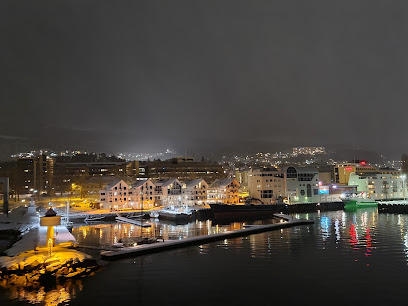
Kviltorp Camping
Discover the beauty of Norway at Kviltorp Camping, an ideal RV park offering stunning views, modern amenities, and exciting outdoor adventures.

Molde Fjordhotell
Discover the beauty of Norway at Molde Fjordhotell, a serene hotel offering breathtaking fjord views, fine dining, and perfect accommodations for relaxation.
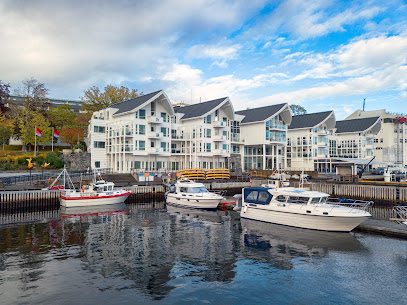
Molde Panorama
Experience stunning panoramic views and rich cultural heritage at Molde Panorama, the ultimate observation deck in Norway's picturesque landscape.
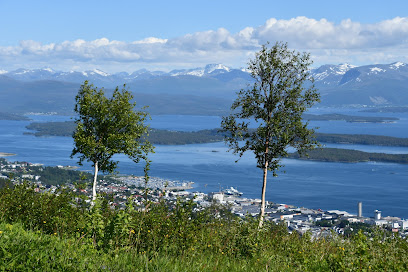
Eventyrlige Skaret - Skarstua
Discover the flavors of Norway at Eventyrlige Skaret - Skarstua, where stunning views meet delicious local cuisine in Molde.
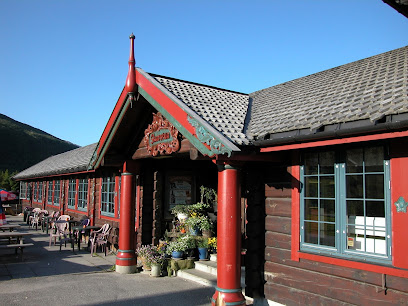
Thon Hotel Moldefjord
Experience stunning fjord views and modern comfort at Thon Hotel Moldefjord, your perfect retreat in the heart of Molde, Norway.
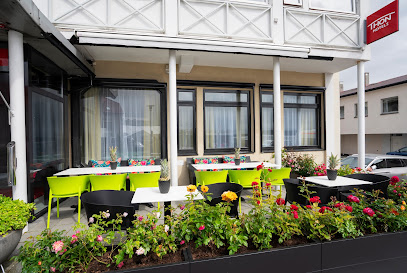
Romsdal Museum
Explore the rich cultural heritage of Norway at Romsdal Museum, a captivating experience for tourists and families in beautiful Molde.
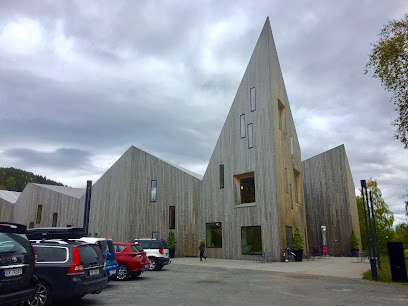
Glass Resturant - Bar
Experience the finest seafood and gourmet pizzas at Molde's Glass Restaurant, where stylish dining meets local flavors in a vibrant setting.
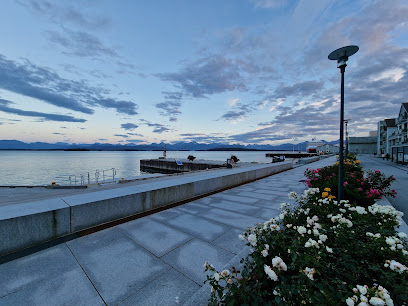
Molde Airport
Molde Airport: Your gateway to the picturesque fjords and breathtaking landscapes of Norway's Romsdal region.
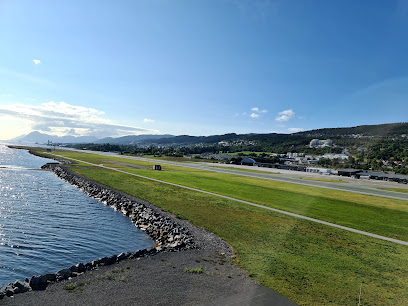
Molde Cathedral
Discover the architectural splendor and serene atmosphere of Molde Cathedral, a must-visit spiritual landmark in Norway's picturesque landscape.
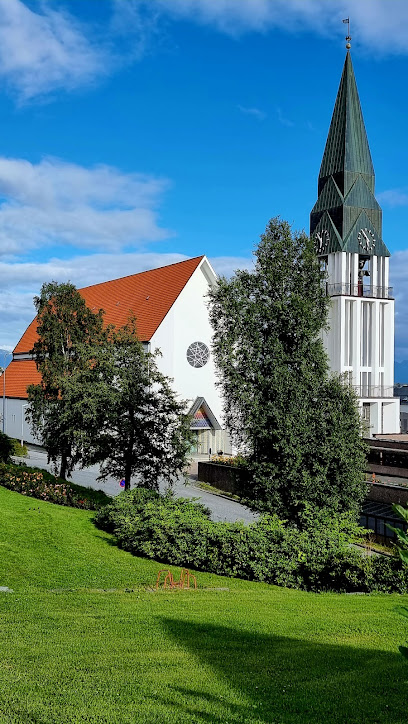
The Royal Birch
Explore the captivating history and art of Molde at The Royal Birch, a must-visit historical museum showcasing Norway's rich cultural heritage.
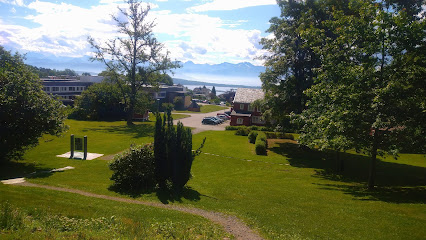
Trail Head to Varden Molde Panorama
Experience breathtaking views and serene hiking trails at Varden Molde Panorama, an outdoor paradise in Kvamsøy, Norway.
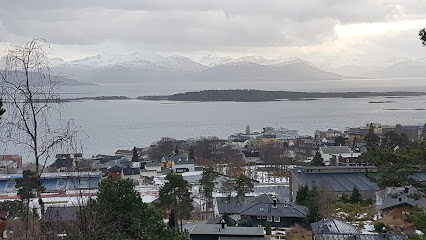
The Château
Explore The Château in Molde, a stunning historical landmark that showcases Norway's rich culture and breathtaking architecture.
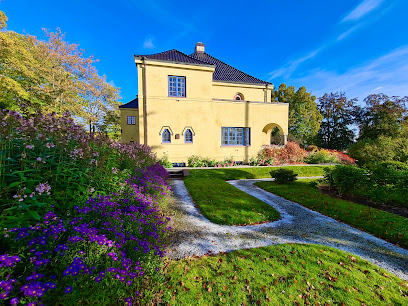
Høyt & Lavt Molde
Unleash your adventurous spirit at Høyt & Lavt Molde, Norway's leading climbing park, offering thrilling courses amidst breathtaking scenery.
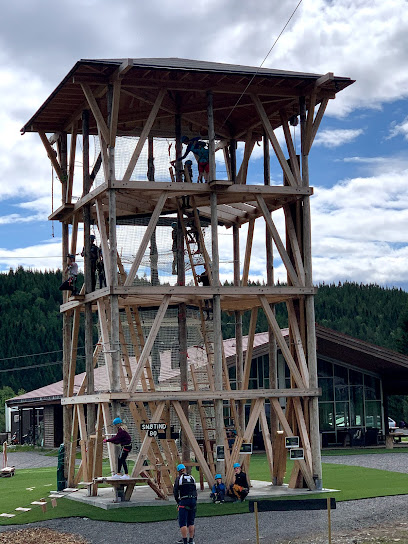
Buddy Molde
Explore Buddy Molde, the go-to pet store in Molde, Norway, offering quality supplies and a welcoming environment for all pet enthusiasts.
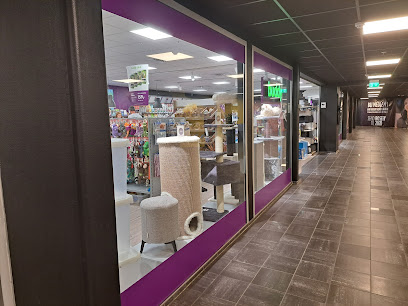
Unmissable attractions to see
Gudbrandsjuvet
Explore the breathtaking Gudbrandsjuvet gorge in Åndalsnes, Norway, a stunning natural attraction featuring dramatic cliffs and cascading waters.
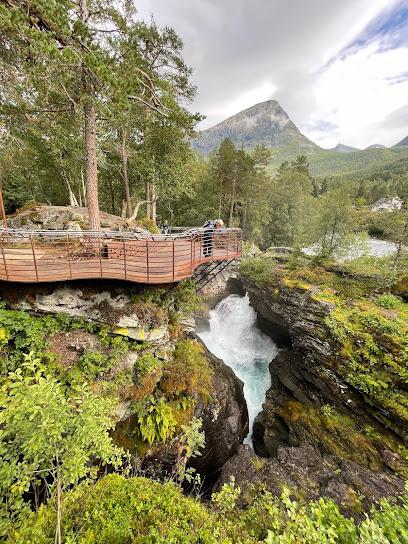
Rampestreken
Experience the breathtaking beauty of Rampestreken, a scenic hiking attraction in Åndalsnes, Norway, with stunning views of the Romsdal Valley.
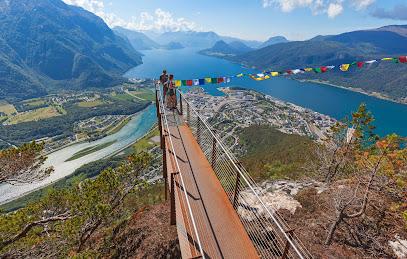
Romsdal Museum
Explore the rich culture and history of Norway at Romsdal Museum, featuring traditional buildings, engaging exhibitions, and beautiful landscapes.
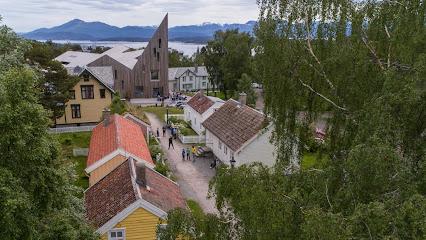
Moldebadet
Experience the excitement of Moldebadet, a premier water park in Norway, offering thrilling slides, relaxing pools, and family-friendly fun for all ages.
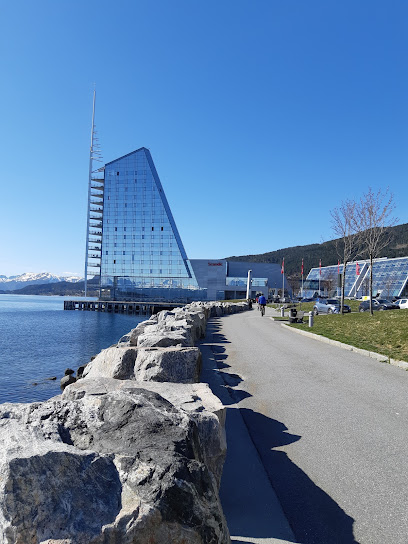
Varden
Discover the stunning vistas from Varden in Kristiansund, Norway—a scenic viewpoint perfect for photography and relaxation amidst nature's beauty.
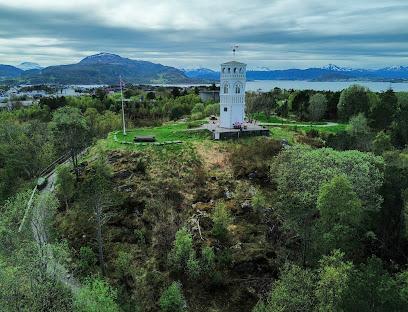
Trollstigen Foothill Viewpoint
Explore the breathtaking Trollstigen Foothill Viewpoint, where stunning landscapes and iconic mountain roads await in Norway's natural paradise.
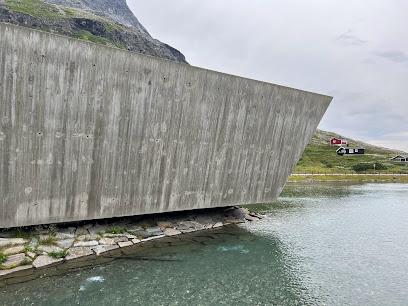
Norsk Tindesenter
Explore Norsk Tindesenter in Åndalsnes - A hub for adventure, culture, and breathtaking views of Norway's majestic landscapes.
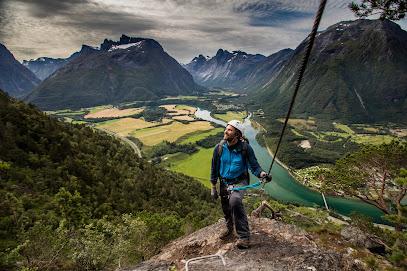
Molde Cathedral
Explore the stunning architecture and serene atmosphere of Molde Cathedral, a must-visit tourist attraction in beautiful Molde, Norway.
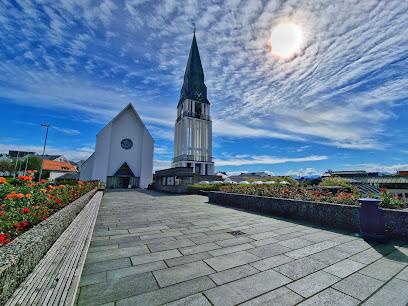
Trail Head to Varden Molde Panorama
Experience the breathtaking views and diverse landscapes of Varden Molde Panorama Trail, an unforgettable hiking destination in Norway.
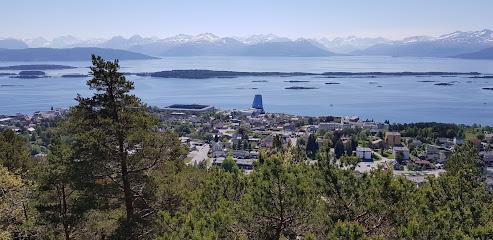
The Royal Birch
Explore The Royal Birch in Molde, a captivating blend of nature and history, perfect for tourists seeking cultural enrichment and scenic beauty.
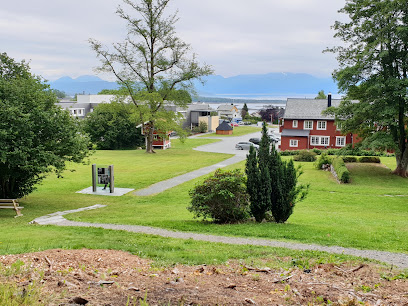
Reknesparken
Experience the serene beauty of Reknesparken in Molde, Norway, where lush gardens and breathtaking fjord views await.
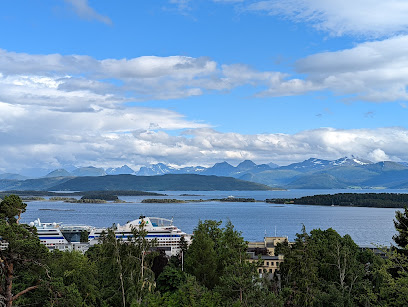
The Château
Discover the historical charm and breathtaking views at The Château, a must-visit landmark in Molde, Norway, showcasing rich cultural heritage.
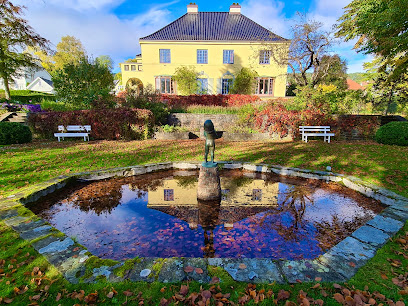
Nesaksla
Explore the breathtaking hiking trails of Nesaksla in Åndalsnes, Norway, where stunning views and nature's beauty await every adventurer.
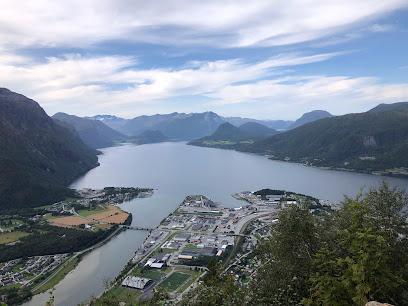
Romsdalsstigen Via Ferrata
Discover breathtaking views and adrenaline-pumping climbs at Romsdalsstigen Via Ferrata in Åndalsnes, Norway.
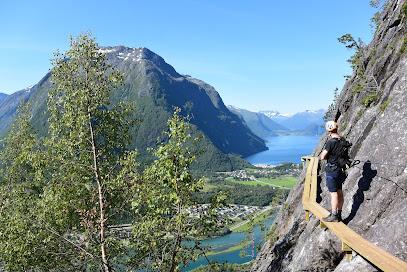
Høyt & Lavt Molde
Experience the thrill of treetop adventures at Høyt & Lavt Molde, a must-visit destination for outdoor lovers in Norway.
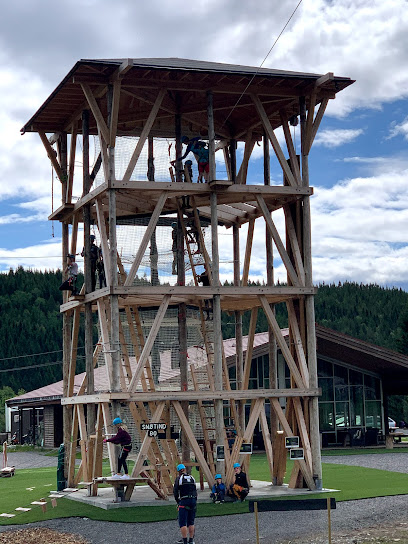
Essential places to dine
Egon Molde
Discover Egon Molde: where local flavors meet global cuisine in a cozy atmosphere perfect for every traveler.
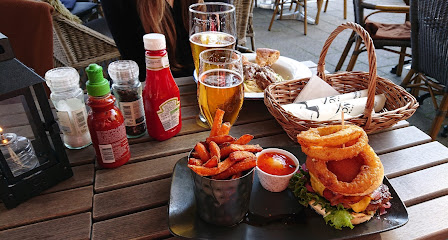
Molde Fjordhotell
Discover breathtaking fjord views and exquisite seafood at Molde Fjordhotell - your perfect retreat in Norway's natural beauty.
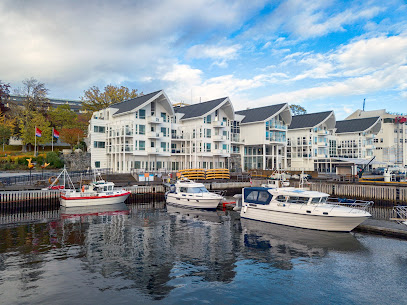
McDonald's Roseby
Discover delicious fast food at McDonald's Roseby in Molde - perfect for families and tourists craving a quick bite!
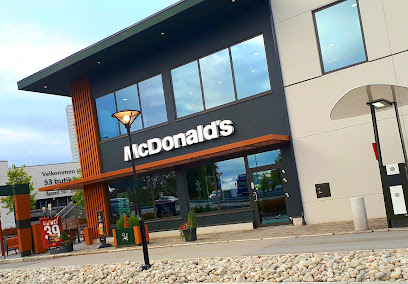
Eventyrlige Skaret - Skarstua
Experience exquisite local cuisine amidst breathtaking landscapes at Eventyrlige Skaret - Skarstua in Molde.
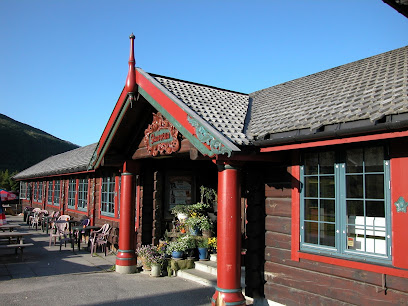
Burger King
Experience delicious fast food at Burger King in Molde - flame-grilled burgers and tasty sides await!
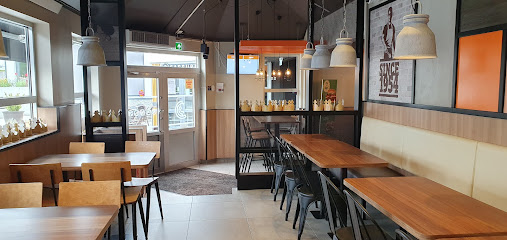
Glass Resturant - Bar
Discover culinary excellence at Glass Restaurant - Bar in Molde, where fresh seafood meets innovative cocktails for an unforgettable dining experience.
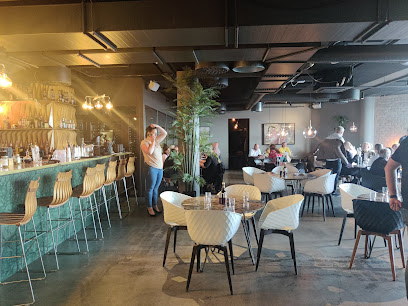
Milano Ristorante Molde AS
Discover authentic Italian cuisine at Milano Ristorante Molde with exquisite pizzas and classic dishes in a cozy setting.
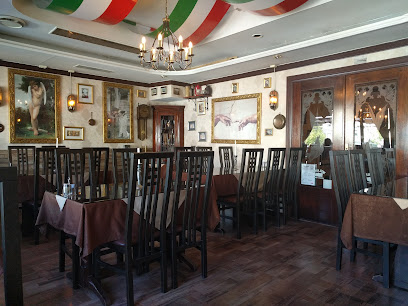
Tap & Cork
Experience the best of local craft beer and delicious cuisine at Tap & Cork, Molde's favorite brewpub for an unforgettable night out.
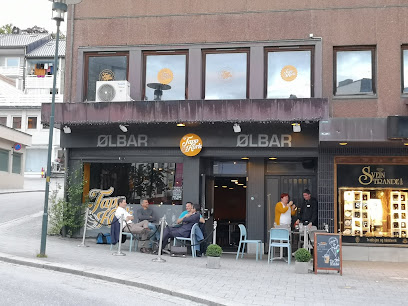
Rød Bare Blå
Discover exquisite dining at Rød Bare Blå in Molde - where local flavors meet modern cuisine in a cozy atmosphere.
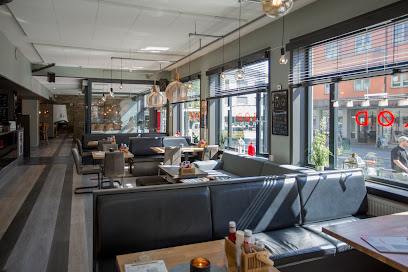
Express Pizza og Grill
Discover delicious pizza and quick bites at Express Pizza og Grill in Molde - perfect for takeout or dining in.
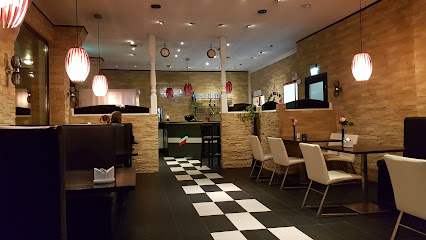
Smile Thai & Sushi Restaurant
Discover the fusion of authentic Thai cuisine and exquisite sushi at Smile Thai & Sushi Restaurant in Molde - A true culinary adventure awaits!
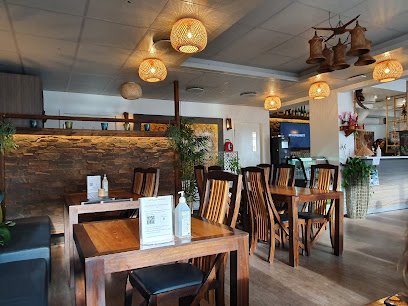
Tandoori Guru Indisk Restaurant
Discover the authentic flavors of India at Tandoori Guru Indisk Restaurant in Molde – where every dish tells a story.
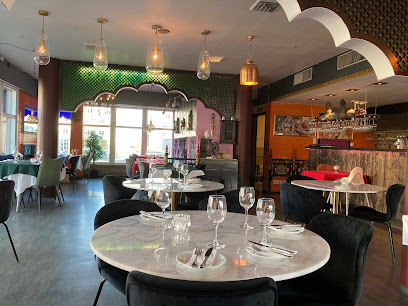
Sense Amalie Restaurant
Discover authentic Norwegian cuisine at Sense Amalie Restaurant in Molde, where fresh ingredients meet stunning views for an unforgettable dining experience.
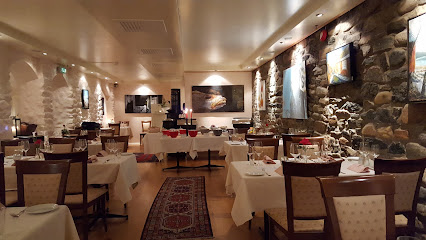
Köl
Discover Köl: A culinary haven in Molde serving exquisite meat and seafood dishes that delight every palate.
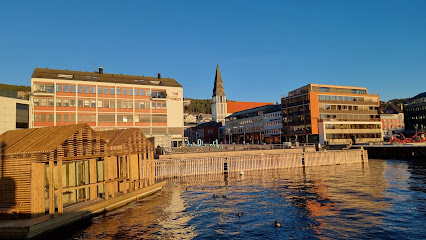
Amore Restaurant Vestnes AS
Experience the essence of Norwegian cuisine at Amore Restaurant Vestnes - where fresh ingredients meet innovative cooking.
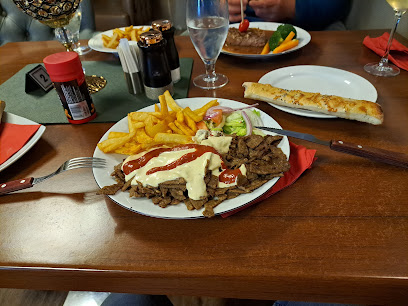
Markets, malls and hidden boutiques
AMFI Roseby
Discover shopping bliss at AMFI Roseby, Molde’s vibrant retail hub with diverse stores, dining options, and family-friendly amenities.
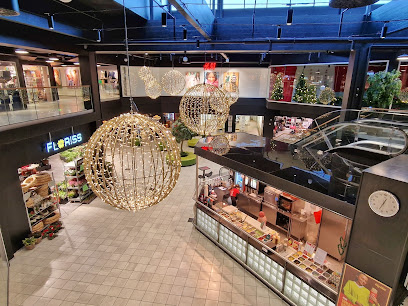
Amfi Roseby Storsenter
Explore Amfi Roseby Storsenter, Molde's vibrant shopping mall with diverse retail, dining, and entertainment options for an unforgettable experience.
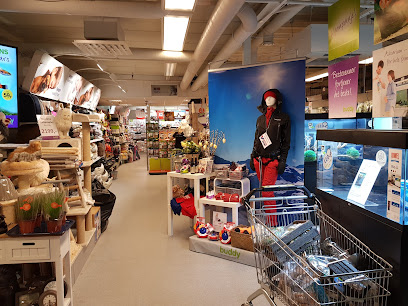
Moldetorget
Explore Moldetorget: Your ultimate shopping and dining experience in the heart of Molde, Norway, blending local culture with modern conveniences.
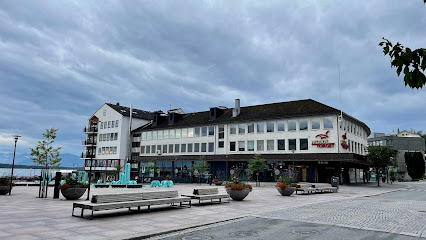
Molde Sentrum AS
Explore Molde Sentrum AS for a delightful shopping experience in the heart of Molde, Norway, filled with local culture and delicious dining options.
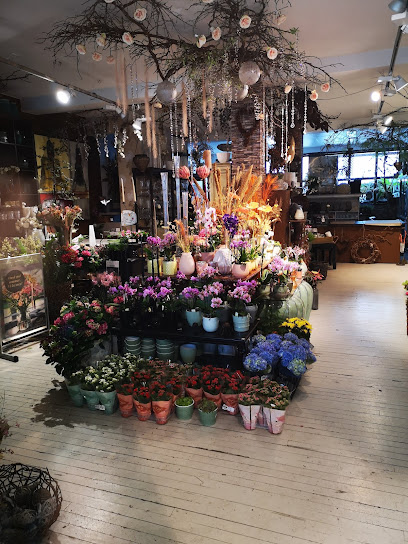
Elkjøp Stormarked Molde
Explore the best in electronics at Elkjøp Stormarked Molde, your go-to destination for innovative gadgets and essential home appliances.
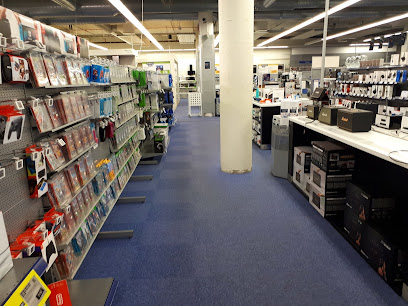
Clas Ohlson Molde
Explore Clas Ohlson Molde for a wide range of home improvement products, electronics, and DIY essentials in a welcoming atmosphere.
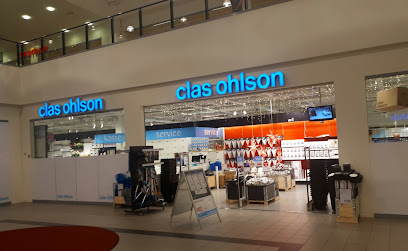
Eurospar Molde
Discover the best local groceries and fresh produce at Eurospar Molde, your ultimate shopping destination in the heart of Norway.
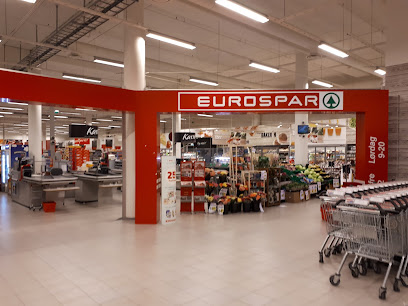
Sports Outlet Molde
Discover a world of sporting goods at Sports Outlet Molde, your ultimate destination for outdoor adventures and athletic pursuits in Norway.
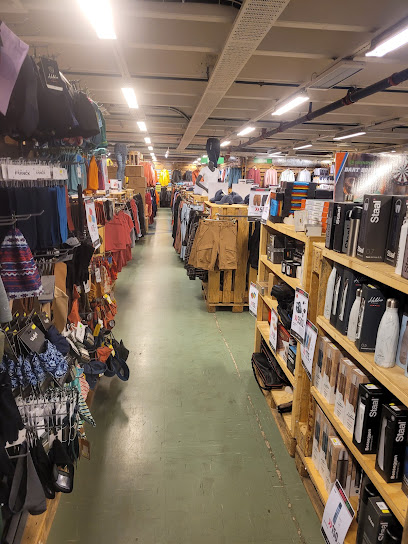
H&M
Discover the latest trends in clothing and accessories for all ages at H&M in Molde, a stylish and affordable shopping destination.
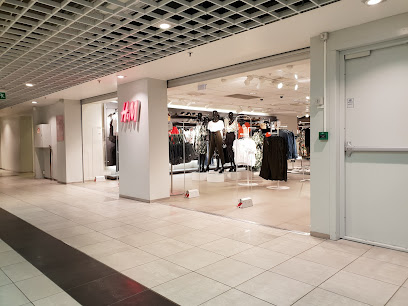
Søstrene Grene
Discover creativity at Søstrene Grene, where art supplies meet home decor and unique gifts in the heart of Molde, Norway.
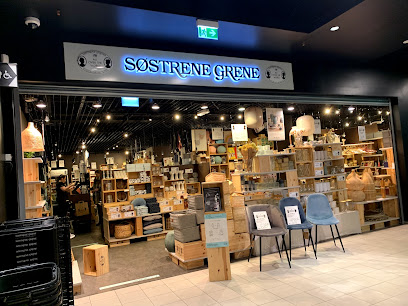
JYSK Molde
Discover stylish and affordable furniture at JYSK Molde, your ultimate destination for home decor in Norway.
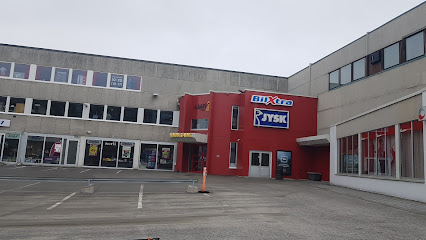
Asia Supermarket
Explore the vibrant world of Asian flavors and ingredients at Asia Supermarket in Molde, Norway's premier destination for authentic Asian groceries.
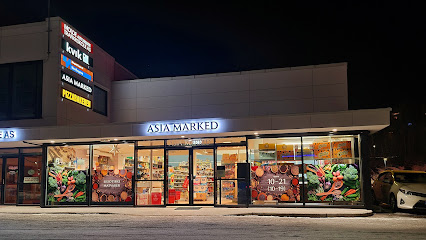
NORMAL Molde, Moldetorget
Discover unbeatable deals and a wide range of products at NORMAL Molde, your go-to discount store for budget-friendly shopping.
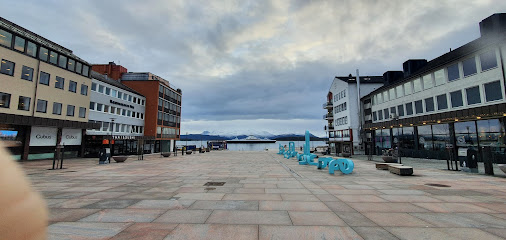
NMS Gjenbruk Molde
Explore NMS Gjenbruk Molde, a consignment shop treasure trove offering unique finds and promoting sustainable shopping in a welcoming atmosphere.
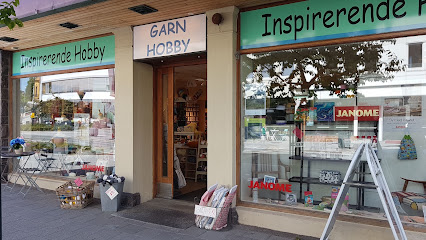
Platou Molde
Explore the great outdoors in Norway with top-quality gear from Platou Molde, your go-to sportswear store in Molde for adventure enthusiasts.
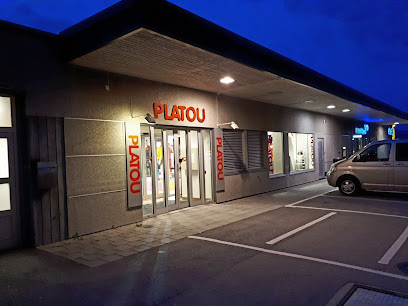
Essential bars & hidden hideouts
Egon Molde
Experience the culinary delights of Egon Molde, where local flavors meet stunning fjord views in a cozy atmosphere.
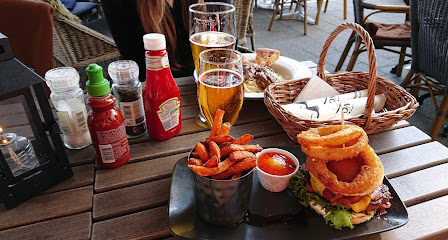
Molde Fjordhotell
Discover the breathtaking beauty and culinary delights of Molde Fjordhotell, your gateway to Norway's stunning coastline.

Glass Resturant - Bar
Experience the best of Molde's culinary scene at Glass Restaurant - Bar, featuring seafood, pizza, cocktails, and stunning fjord views.
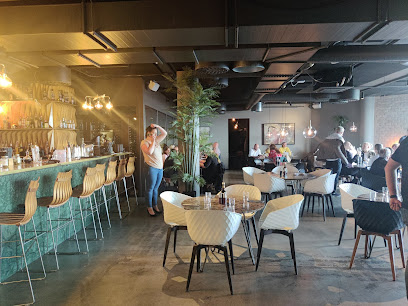
Tap & Cork
Experience the vibrant nightlife at Tap & Cork in Molde, Norway - a perfect blend of local charm and global flavors in a welcoming bar atmosphere.
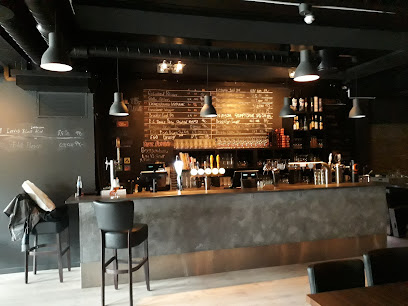
Rød Bare Blå
Experience the rich flavors of Norway at Rød Bare Blå, a charming restaurant in Molde known for its delightful fusion of traditional and modern cuisine.
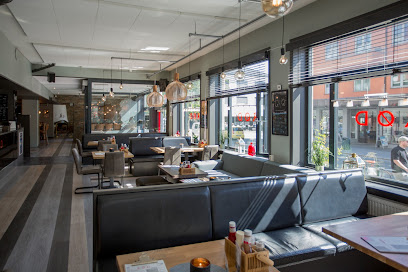
Smile Thai & Sushi Restaurant
Discover the vibrant flavors of Thailand and the artistry of sushi at Smile Thai & Sushi Restaurant, a culinary treasure in Molde.
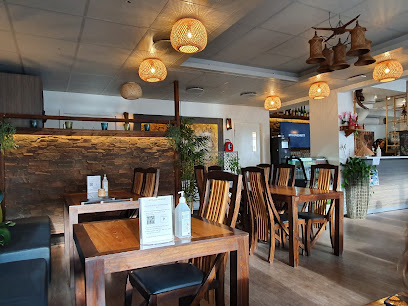
Sense Amalie Restaurant
Discover the authentic taste of Norway at Sense Amalie Restaurant, where fresh local ingredients meet stunning fjord views.
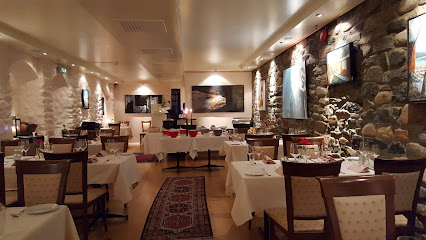
Köl
Discover the essence of Norwegian cuisine at Köl, a premier restaurant in Molde specializing in exquisite meat and seafood dishes.
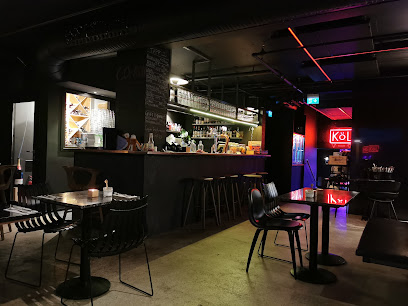
Panorama Bowling
Discover the perfect blend of fun and relaxation at Panorama Bowling in Molde, where bowling meets pub ambiance for an unforgettable experience.
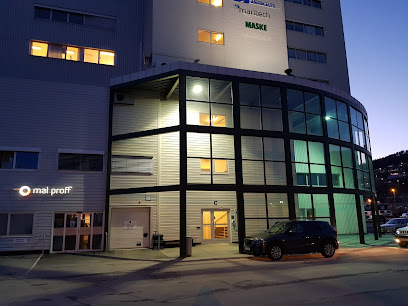
Brygga
Discover Brygga, Molde's vibrant bar offering local drinks and stunning waterfront views, perfect for relaxation and socializing.
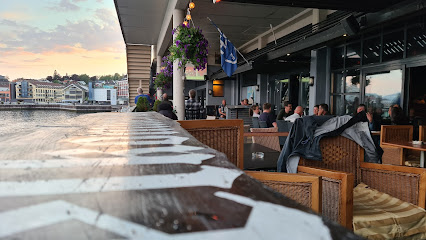
Syd Cocktails & Vin
Experience the taste of Molde at Syd Cocktails & Vin, where exquisite dishes and fine drinks await in a cozy, elegant setting.
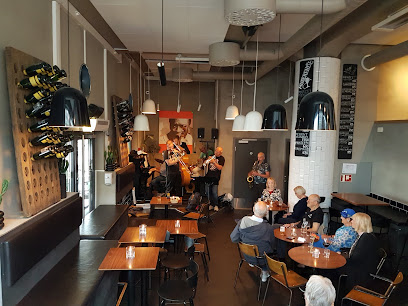
Sportspuben 1911
Immerse yourself in the lively atmosphere of Sportspuben 1911, Molde's ultimate sports bar, where every game is a celebration.
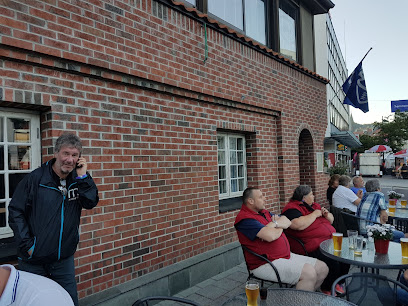
Naustbrygga AS
Discover the flavors of Norway at Naustbrygga AS, where fresh ingredients meet stunning harbor views in Molde.
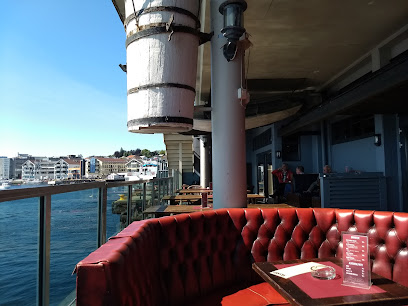
Restaurant Hav
Savor the finest seafood and exquisite wines at Restaurant Hav, overlooking the stunning fjords of Molde.
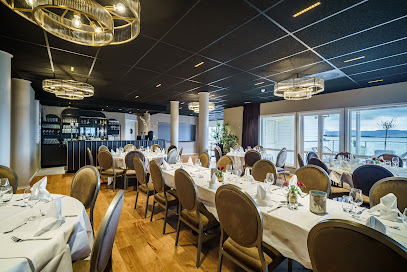
Local Phrases
-
- HelloHei
[hay] - GoodbyeHa det
[hah deh] - YesJa
[yah] - NoNei
[nay] - Please/You're welcomeVær så god
[vair soh goo] - Thank youTakk
[tahk] - Excuse me/SorryUnnskyld
[oonskuld] - How are you?Hvordan har du det?
[vohr-dan har doo deh] - Fine. And you?Fint. Og du?
[feent. oh doo] - Do you speak English?Snakker du engelsk?
[snah-ker doo engelsk] - I don't understandJeg skjønner ikke
[yay shooner ee-teh]
- HelloHei
-
- I'd like to see the menu, pleaseJeg vil gjerne se menyen, takk
[yay veell yern-eh seh meh-nyen, tahk] - I don't eat meatJeg spiser ikke kjøtt
[yay spee-ser ee-teh shøtt] - Cheers!Skål!
[skohl] - I would like to pay, pleaseJeg vil gjerne betale, takk
[yay veell yern-eh beh-tah-leh, tahk]
- I'd like to see the menu, pleaseJeg vil gjerne se menyen, takk
-
- Help!Hjelp!
[yelp] - Go away!Gå bort!
[goh bohrt] - Call the Police!Ring politiet!
[ring poh-lee-tee-eh] - Call a doctor!Ring en lege!
[ring en leh-geh] - I'm lostJeg er borte
[yay air bohr-teh] - I'm illJeg er syk
[yay air sook]
- Help!Hjelp!
-
- I'd like to buy...Jeg vil kjøpe...
[yay veell shø-peh] - I'm just lookingJeg bare ser
[yay bah-reh sehr] - How much is it?Hvor mye koster det?
[vohr myeh kohs-ter deh] - That's too expensiveDet er for dyrt
[deh air for deert] - Can you lower the price?Kan du senke prisen?
[kahn doo sehn-keh pree-sehn]
- I'd like to buy...Jeg vil kjøpe...
-
- What time is it?Hva er klokka?
[vah air klok-kah] - It's one o'clockKlokka er ett
[klok-kah air eht] - Half past (10)Halv ti
[hahlv tee] - MorningMorgen
[mor-gen] - AfternoonEttermiddag
[et-ter-mee-dahg] - EveningKveld
[kvehld] - YesterdayI går
[ee gor] - TodayI dag
[ee dahg] - TomorrowI morgen
[ee mor-gen] - 1En
[ehn] - 2To
[too] - 3Tre
[treh] - 4Fire
[fee-reh] - 5Fem
[fem] - 6Seks
[sehks] - 7Sju
[shoo] - 8Åtte
[oh-teh] - 9Ni
[nee] - 10Ti
[tee]
- What time is it?Hva er klokka?
-
- Where's a/the...?Hvor er en/et...?
[vohr air en/et] - What's the address?Hva er adressen?
[vah air ah-dres-sehn] - Can you show me (on the map)?Kan du vise meg (på kartet)?
[kahn doo vee-seh may (poh kahr-teh)] - When's the next (bus)?Når går neste (buss)?
[nahr gohr nes-teh (boos)] - A ticket (to ....)En billett (til ....)
[ehn bee-leht (teel)]
- Where's a/the...?Hvor er en/et...?
History of Molde
-
Molde, often referred to as the 'Town of Roses,' was founded as a trading post in the 15th century. Its strategic location along the Romsdalsfjord made it an important hub for commerce and fishing. The settlement gradually expanded as more people were drawn to its fertile lands and fishing opportunities.
-
One of the most significant events in Molde's history is the Great Fire of 1916, which devastated much of the town. Over one-third of the buildings were destroyed, leaving many residents homeless. The fire marked a turning point, as the reconstruction phase led to the modernization of the town's infrastructure and architecture.
-
During World War II, Molde played a crucial role as a strategic location for both the Allies and the Axis powers. The town was heavily bombed by German forces in 1940, leading to significant destruction. Despite the hardships, the local population showed resilience and courage, and Molde eventually became a symbol of Norwegian resistance. King Haakon VII and the Norwegian government fled to Molde before escaping to the United Kingdom.
-
After World War II, Molde underwent significant reconstruction and development. The town benefited from the Marshall Plan, which provided financial aid for rebuilding. This period saw the growth of industries such as shipbuilding, as well as the expansion of educational and cultural institutions.
-
Founded in 1961, the Molde International Jazz Festival is one of the oldest and most prestigious jazz festivals in Europe. Held annually in July, the festival attracts world-renowned musicians and jazz enthusiasts from around the globe. It has become a cornerstone of Molde's cultural identity, reflecting the town's vibrant artistic community.
-
Molde's nickname, the 'Town of Roses,' is derived from its beautiful rose gardens that bloom throughout the town. This horticultural tradition dates back to the early 20th century when local residents began cultivating roses extensively. Today, the roses are a symbol of Molde's natural beauty and community spirit.
-
In recent decades, Molde has continued to thrive as a center for culture, education, and tourism. The town is home to several institutions of higher learning, including Molde University College. Its picturesque landscapes, including the famous Molde Panorama with views of 222 mountain peaks, draw visitors year-round. Molde's blend of historical significance and modern amenities make it a unique and appealing destination.
Molde Essentials
-
Molde is accessible by air, sea, and road. The nearest airport is Molde Airport, Årø (MOL), which connects to several major cities in Norway and some international destinations. From the airport, you can take a taxi or a local bus to the city center. Molde is also accessible by ferry from various coastal cities, including Bergen and Ålesund. For those traveling by car, the E39 highway connects Molde with other parts of Norway.
-
Molde has a well-developed public transportation system including buses and taxis. The local bus network is efficient and covers most parts of the city and surrounding areas. Taxis are available but can be expensive. Renting a car is a convenient option for exploring the scenic routes and nearby attractions at your own pace. Bicycles are also a popular mode of transport, especially during the summer months.
-
The official currency in Norway is the Norwegian Krone (NOK). Credit and debit cards are widely accepted in Molde, including in taxis, restaurants, and shops. ATMs are available throughout the city. It is advisable to carry some cash for smaller establishments or in more remote areas where card payments might not be accepted.
-
Molde is generally a very safe city for tourists. Standard precautions should be taken, such as avoiding poorly lit areas at night and keeping an eye on personal belongings in crowded places. There are no specific high-crime areas targeting tourists. Petty theft can occur, so it is advisable to stay vigilant, especially in popular tourist spots and public transport.
-
In case of an emergency, dial 112 for immediate assistance. This number can be used to reach police, fire, and medical services. Molde has a well-equipped hospital and several clinics for medical emergencies. Pharmacies are available for minor health issues. It is recommended to have travel insurance that covers medical emergencies and other potential issues.
-
Fashion: Do dress in layers, as the weather can be unpredictable. Casual and comfortable clothing is generally acceptable. Religion: Do show respect when visiting churches and religious sites. Remove hats and speak in a low voice. Public Transport: Do buy your ticket before boarding and validate it. Don't eat or drink on public transport. Greetings: Do greet people with a firm handshake and maintain eye contact. Eating & Drinking: Do try local dishes like bacalao and klippfisk. Don't leave food on your plate, as it is considered wasteful.
-
To experience Molde like a local, visit the Romsdal Museum to learn about the region's history and culture. Attend the Molde International Jazz Festival if you're visiting in July. Take a stroll along the Molde Panorama for breathtaking views of the Romsdal Alps and fjords. Engage with locals at cafes and markets; they are generally friendly and willing to share stories about their city. Don’t miss the opportunity to hike in the nearby mountains for some stunning natural scenery.
Trending Landmark in Molde
Nearby Cities to Molde
-
Things To Do in Ålesund
-
Things To Do in Trondheim
-
Things To Do in Bergen
-
Things To Do in Oslo
-
Things To Do in Östersund
-
Things To Do in Stavanger
-
Things To Do in Fredrikstad
-
Things To Do in Karlstad
-
Things To Do in Kristiansand
-
Things To Do in Örebro
-
Things To Do in Skagen
-
Things To Do in Bodø
-
Things To Do in Västerås
-
Things To Do in Frederikshavn
-
Things To Do in Gothenburg










